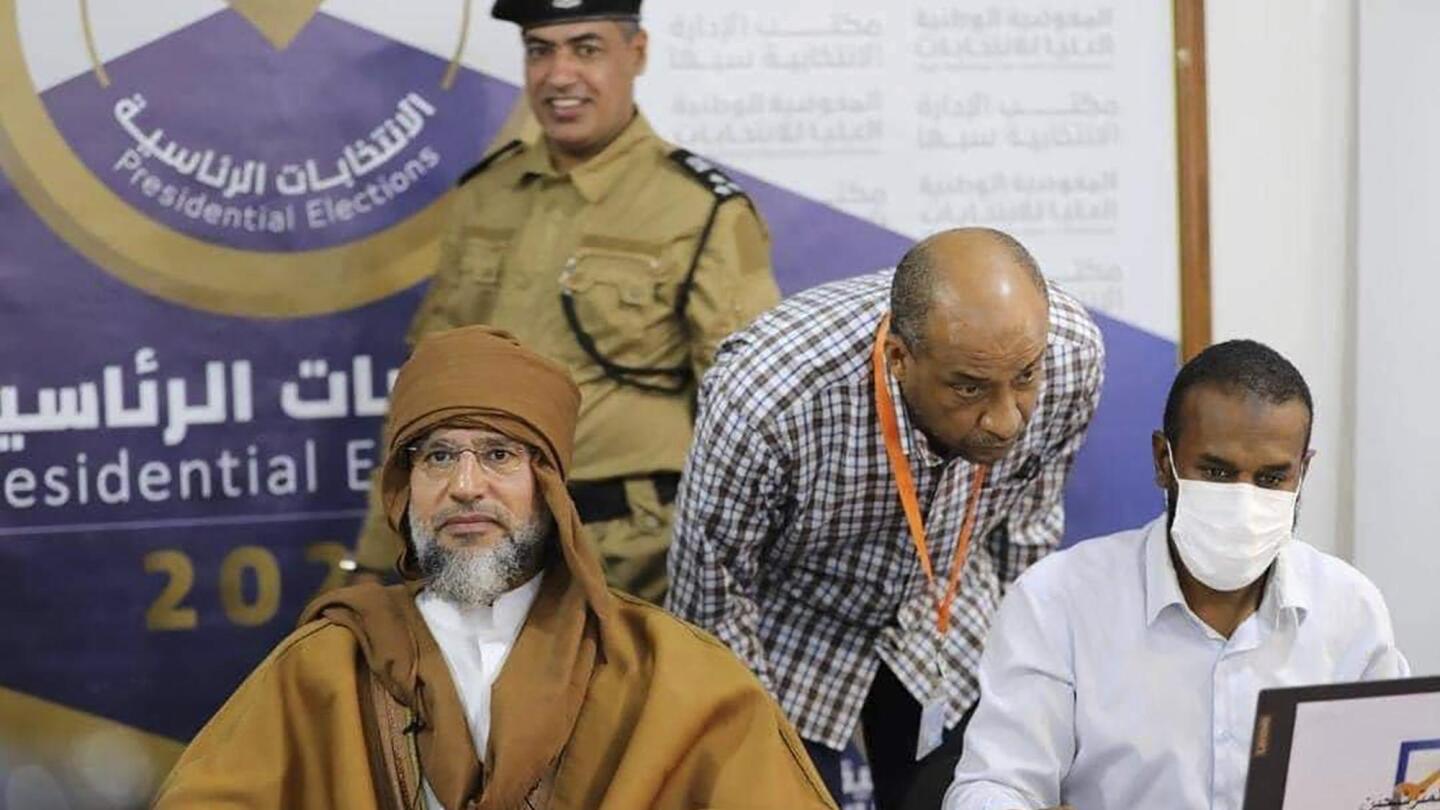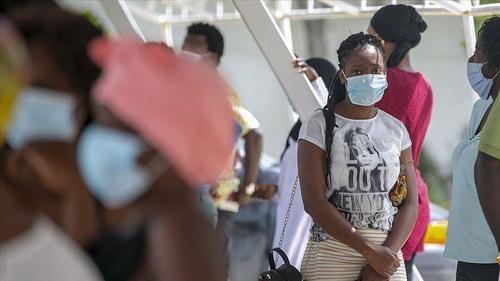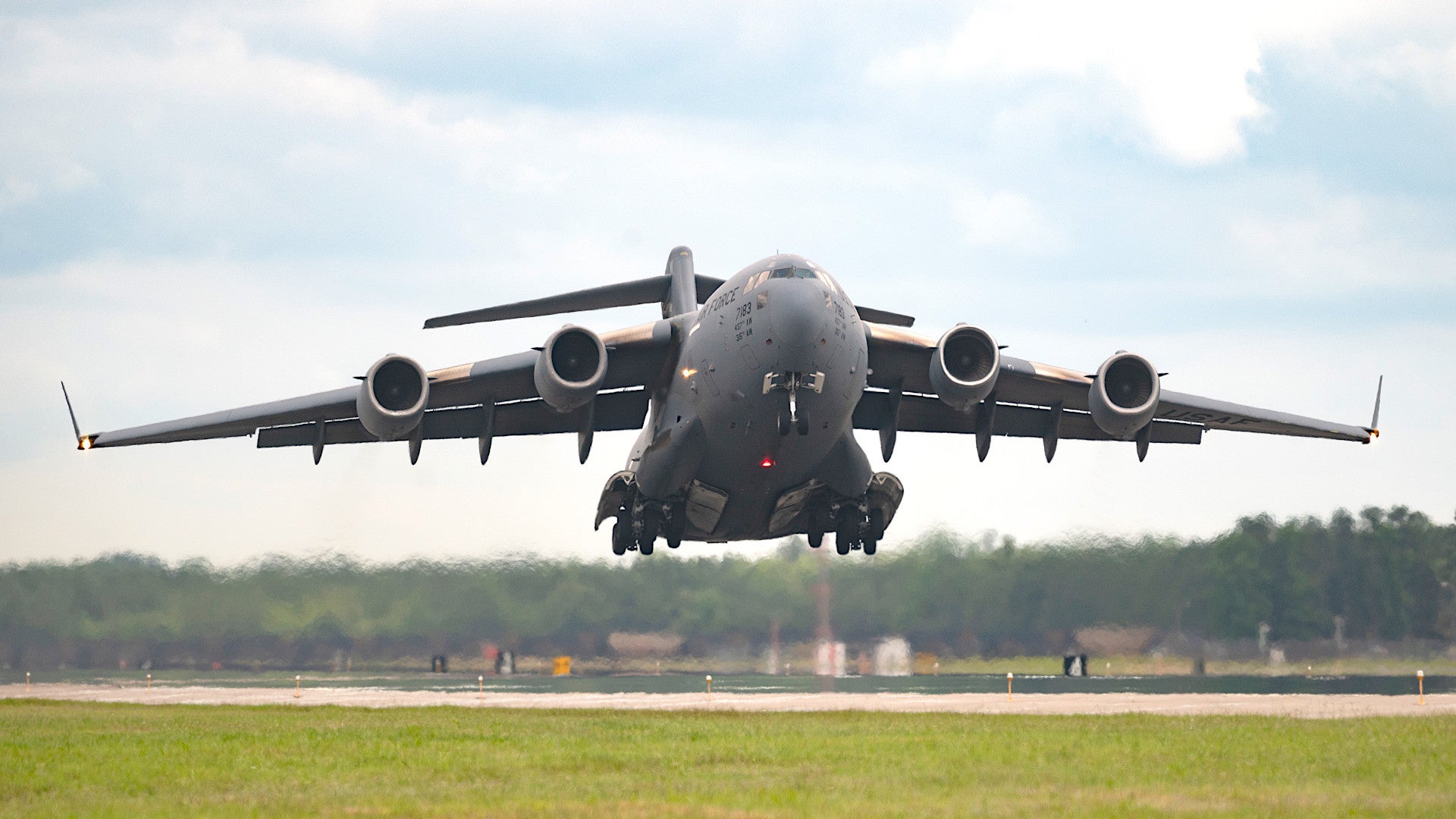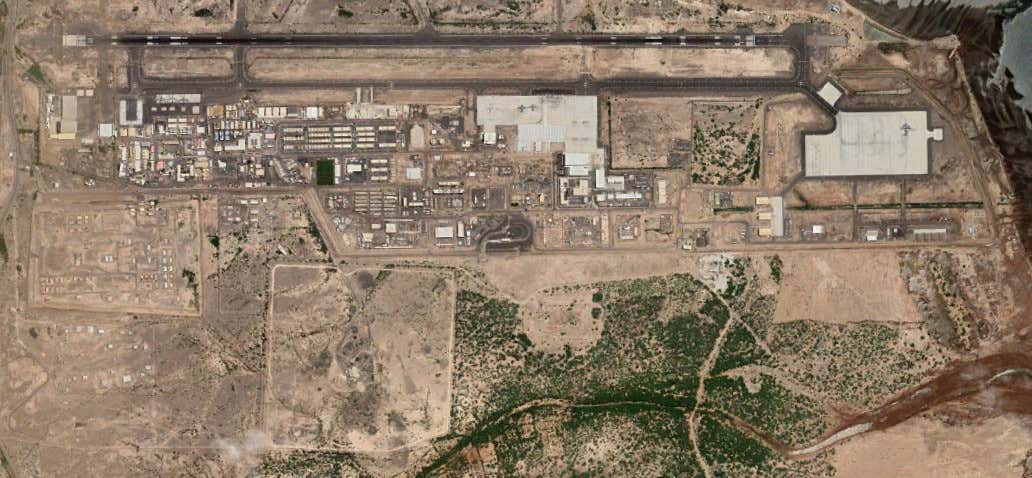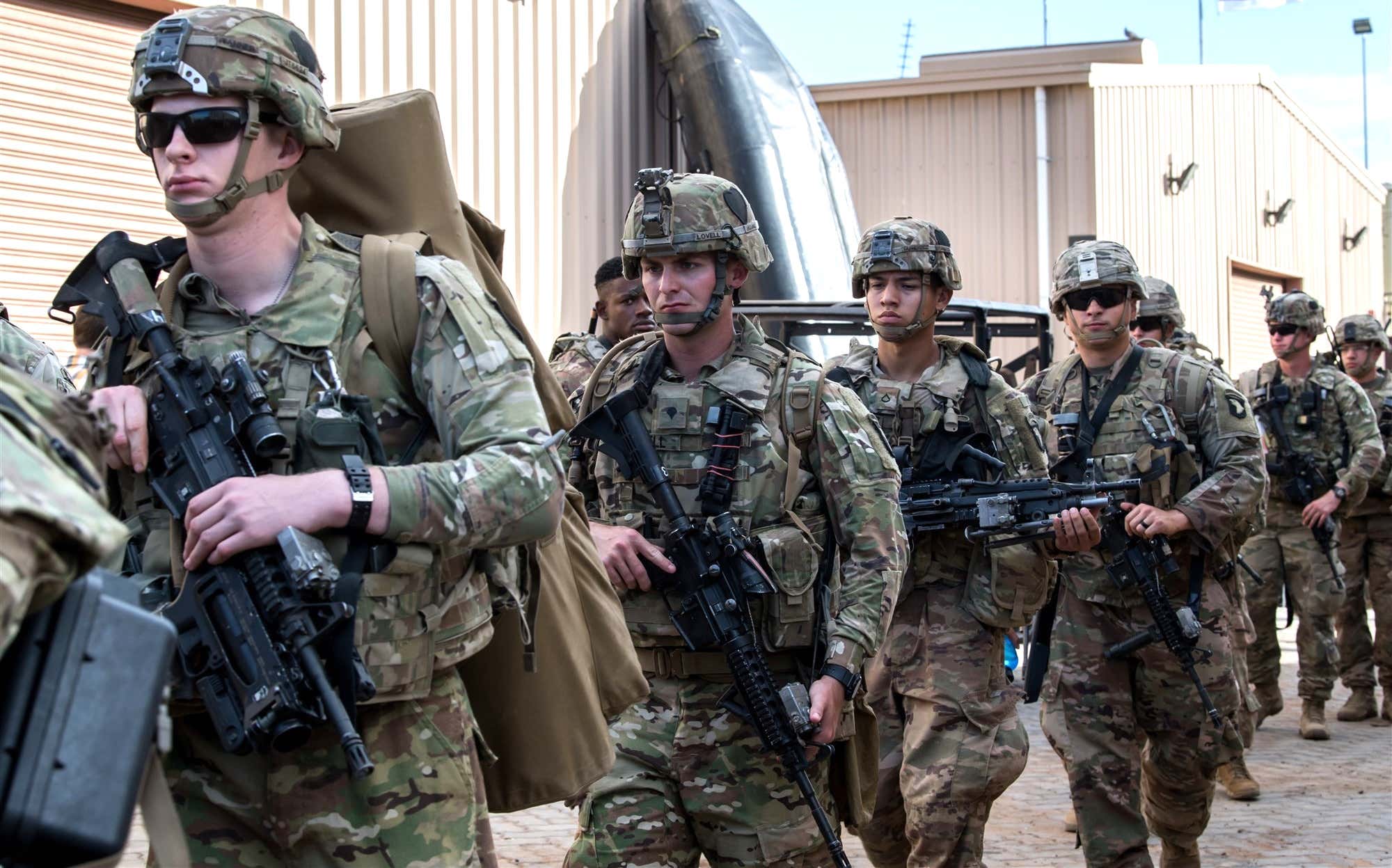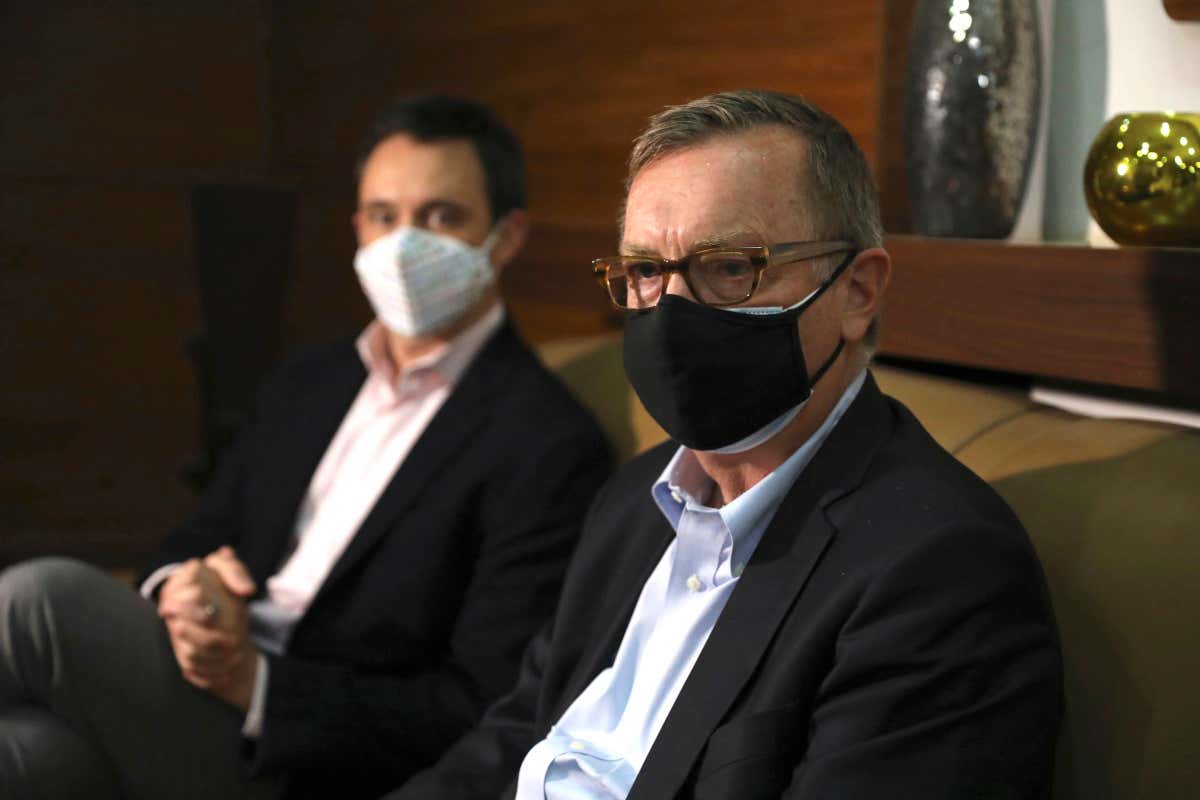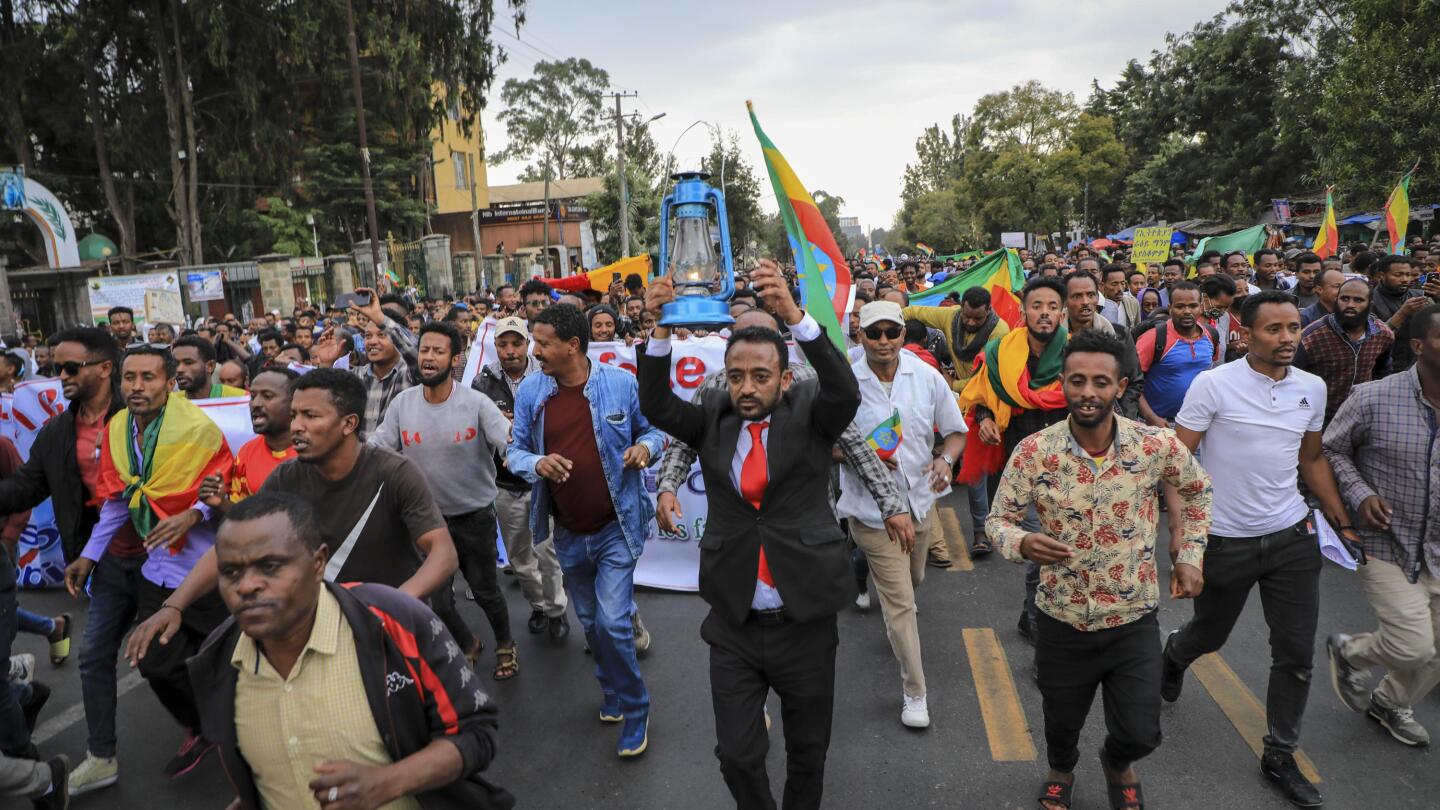Plain Jane
Just Plain Jane
October's thread is here:
 www.timebomb2000.com
www.timebomb2000.com
Regional Conflict in Mediterranean beginning page 76:
 www.timebomb2000.com
www.timebomb2000.com
Main Coronavirus thread beginning page 1340:
 www.timebomb2000.com
www.timebomb2000.com
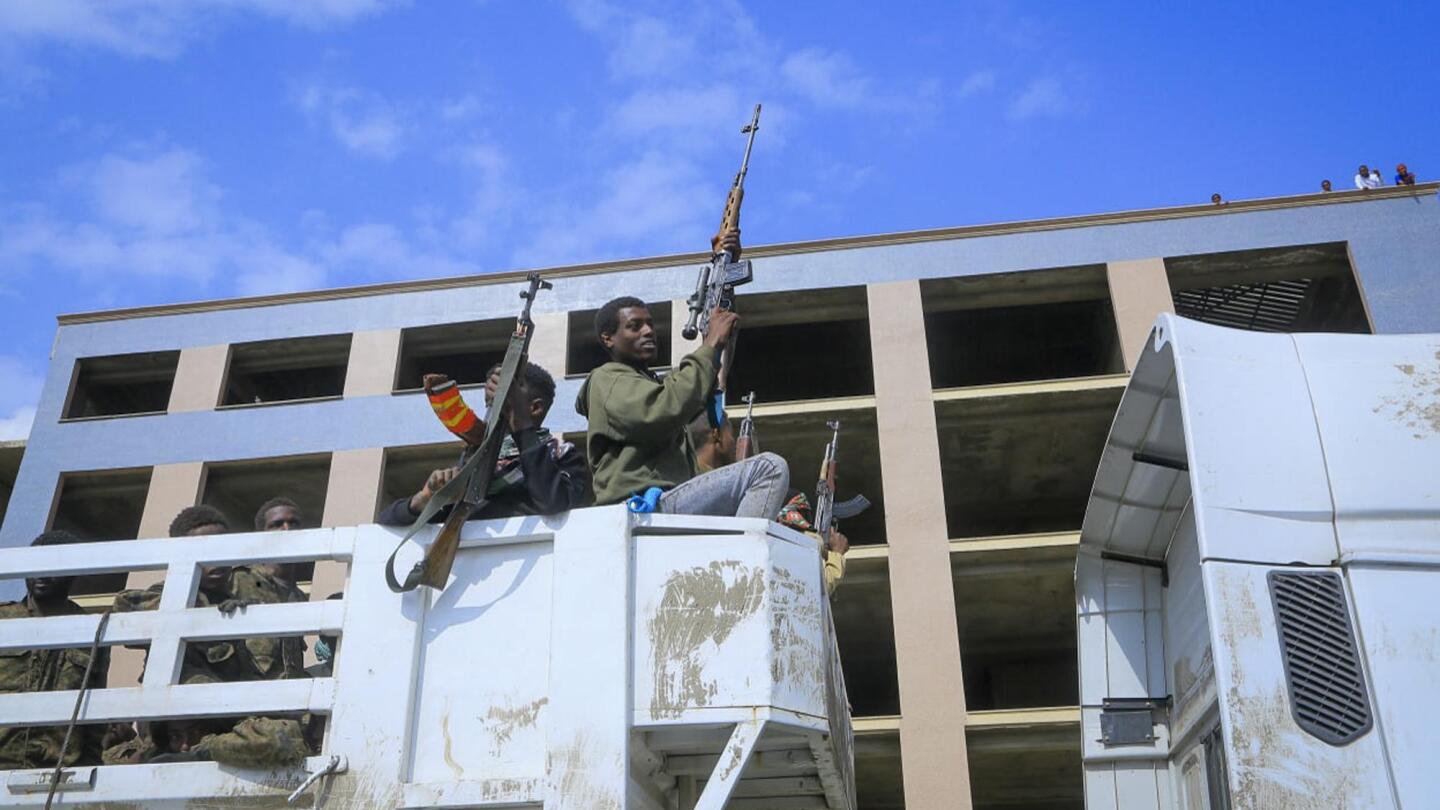
 apnews.com
apnews.com
Click to copy
Ethiopia’s PM defiant as rival Tigray forces make advances
45 minutes ago

1 of 4
Armed Tigray forces, center, accompany captured Ethiopian government soldiers and allied militia members as they are paraded through the streets in open-top trucks, as are taken to a detention center in Mekele, the capital of the Tigray region of northern Ethiopia Friday, Oct. 22, 2021. Ethiopian military airstrikes on Friday forced a United Nations humanitarian flight to abandon its landing in Mekele, aid workers said, and a government spokesman said authorities were aware of the inbound flight. (AP Photo)
NAIROBI, Kenya (AP) — Ethiopia’s prime minister has called on citizens to redouble their efforts to combat the rival Tigray forces who claim to have seized key cities on a major highway leading to the capital.
A move on Addis Ababa is a new phase in the war that has killed thousands of people since fighting broke out a year ago between Ethiopian and allied forces and Tigray ones who long dominated the national government before Prime Minister Abiy Ahmed took office in 2018.
The prime minister’s spokeswoman, Billene Seyoum, told The Associated Press on Monday that Abiy “is where he’s meant to be, leading the country’s front and center.”
Abiy in a statement on Sunday said federal troops are fighting on four fronts against the Tigray forces and “we should know that our enemy’s main strength is our weakness and unpreparedness.” Amid calls on social media for attacks against ethnic Tigrayans, he said “we should closely follow those who work for the enemy and live amongst us.”
A new roundup of Tigrayans was seen in the capital on Monday.
The Tigray forces over the weekend claimed to control the key cities of Dessie and Kombolcha, though the federal government disputed it. The United States has said it is “alarmed” by those reports.
The Tigray forces also told the AP they were poised to physically link up with another armed group, the Oromo Liberation Army, with which it struck an alliance earlier this year.
The fighting could reach the Oromo region that neighbors Addis Ababa. Ethnic Oromo once hailed Abiy as the country’s first Oromo prime minister, but discontent has since emerged with the jailing of outspoken Oromo leaders.
The government of the Amhara region, where fighting has been focused since Tigray forces retook much of their own region in June, on Sunday ordered government institutions to stop regular activities and join the war effort. It also banned most activities in cities and towns after 8 p.m.
The Tigray forces say they are pressuring Ethiopia’s government to lift a months-long blockade on their region of around 6 million people, with basic services cut off and humanitarian food and medical aid denied.
INTL - Africa: Politics, Economics, Military- October 2021
September's thread: https://www.timebomb2000.com/xf/index.php?threads/africa-politics-economics-and-military-september-2021.606597/#post-8739178 Regional Conflict in Mediterranean beginning page 75...
Regional Conflict in Mediterranean beginning page 76:
WAR - Regional conflict brewing in the Mediterranean
View: https://mobile.twitter.com/no_itsmyturn/status/1449850219131244553
Main Coronavirus thread beginning page 1340:
CORONA - Main Coronavirus thread
[EU] https://www.zerohedge.com/political/watch-meps-protest-oppressive-vaccine-passports-question-why-political-elites-push-agenda Watch: MEPs Protest "Oppressive" Vaccine Passports, Question Why "Political Elites Push This Agenda This Hard" SUNDAY, OCT 31, 2021 - 01:15 PM Via...

Ethiopia's PM defiant as rival Tigray forces make advances
Ethiopia’s prime minister has called on citizens to redouble their efforts to combat the rival Tigray forces who claim to have seized key cities on a major highway leading to the capital A move on the capital of Addis Ababa is a new phase in the war that has killed thousands of people since fighting
Click to copy
Ethiopia’s PM defiant as rival Tigray forces make advances
45 minutes ago

1 of 4
Armed Tigray forces, center, accompany captured Ethiopian government soldiers and allied militia members as they are paraded through the streets in open-top trucks, as are taken to a detention center in Mekele, the capital of the Tigray region of northern Ethiopia Friday, Oct. 22, 2021. Ethiopian military airstrikes on Friday forced a United Nations humanitarian flight to abandon its landing in Mekele, aid workers said, and a government spokesman said authorities were aware of the inbound flight. (AP Photo)
NAIROBI, Kenya (AP) — Ethiopia’s prime minister has called on citizens to redouble their efforts to combat the rival Tigray forces who claim to have seized key cities on a major highway leading to the capital.
A move on Addis Ababa is a new phase in the war that has killed thousands of people since fighting broke out a year ago between Ethiopian and allied forces and Tigray ones who long dominated the national government before Prime Minister Abiy Ahmed took office in 2018.
The prime minister’s spokeswoman, Billene Seyoum, told The Associated Press on Monday that Abiy “is where he’s meant to be, leading the country’s front and center.”
Abiy in a statement on Sunday said federal troops are fighting on four fronts against the Tigray forces and “we should know that our enemy’s main strength is our weakness and unpreparedness.” Amid calls on social media for attacks against ethnic Tigrayans, he said “we should closely follow those who work for the enemy and live amongst us.”
A new roundup of Tigrayans was seen in the capital on Monday.
The Tigray forces over the weekend claimed to control the key cities of Dessie and Kombolcha, though the federal government disputed it. The United States has said it is “alarmed” by those reports.
The Tigray forces also told the AP they were poised to physically link up with another armed group, the Oromo Liberation Army, with which it struck an alliance earlier this year.
The fighting could reach the Oromo region that neighbors Addis Ababa. Ethnic Oromo once hailed Abiy as the country’s first Oromo prime minister, but discontent has since emerged with the jailing of outspoken Oromo leaders.
The government of the Amhara region, where fighting has been focused since Tigray forces retook much of their own region in June, on Sunday ordered government institutions to stop regular activities and join the war effort. It also banned most activities in cities and towns after 8 p.m.
The Tigray forces say they are pressuring Ethiopia’s government to lift a months-long blockade on their region of around 6 million people, with basic services cut off and humanitarian food and medical aid denied.








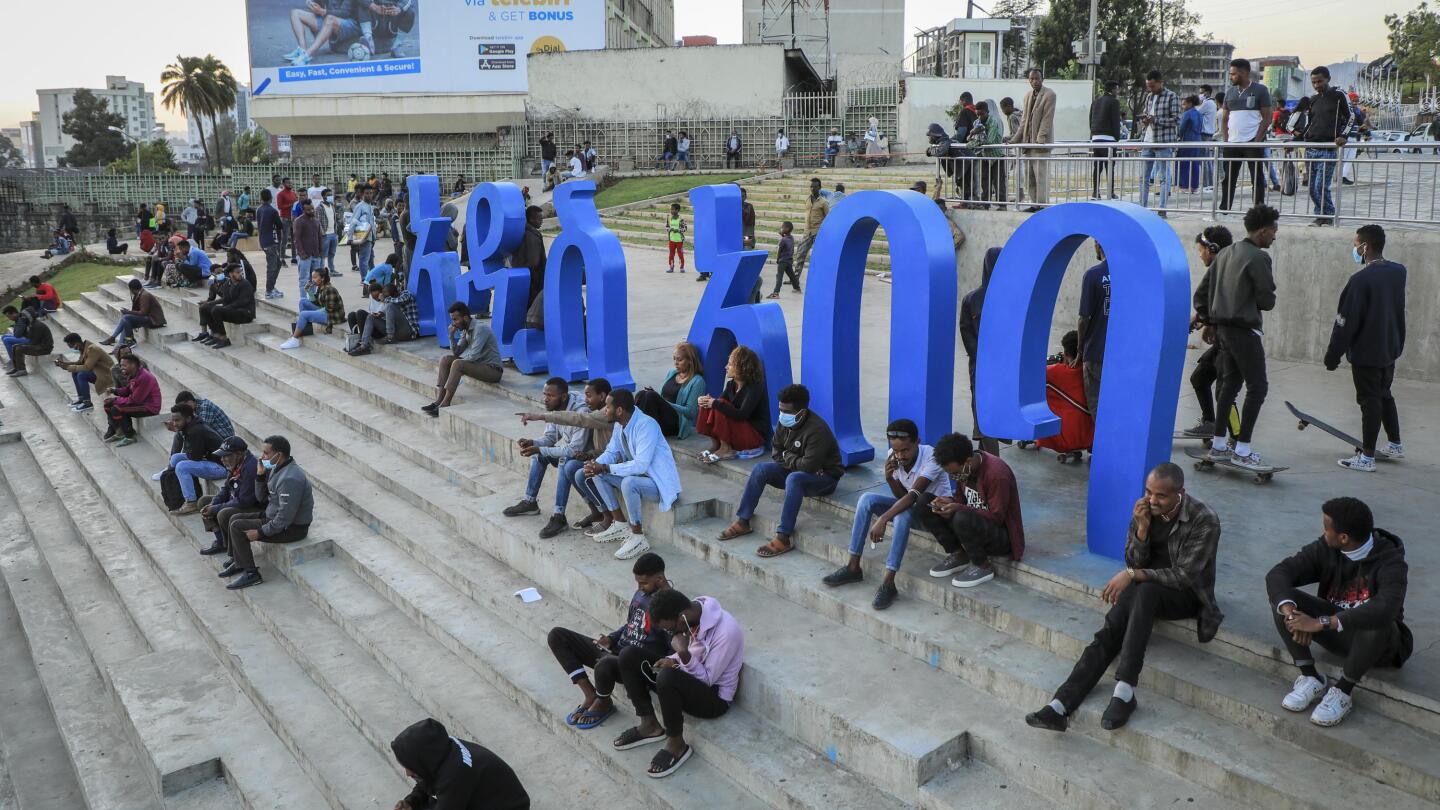


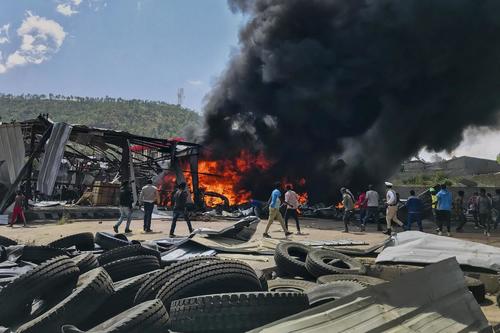 Airstrike aftermath in Tigray region, via AP
Airstrike aftermath in Tigray region, via AP





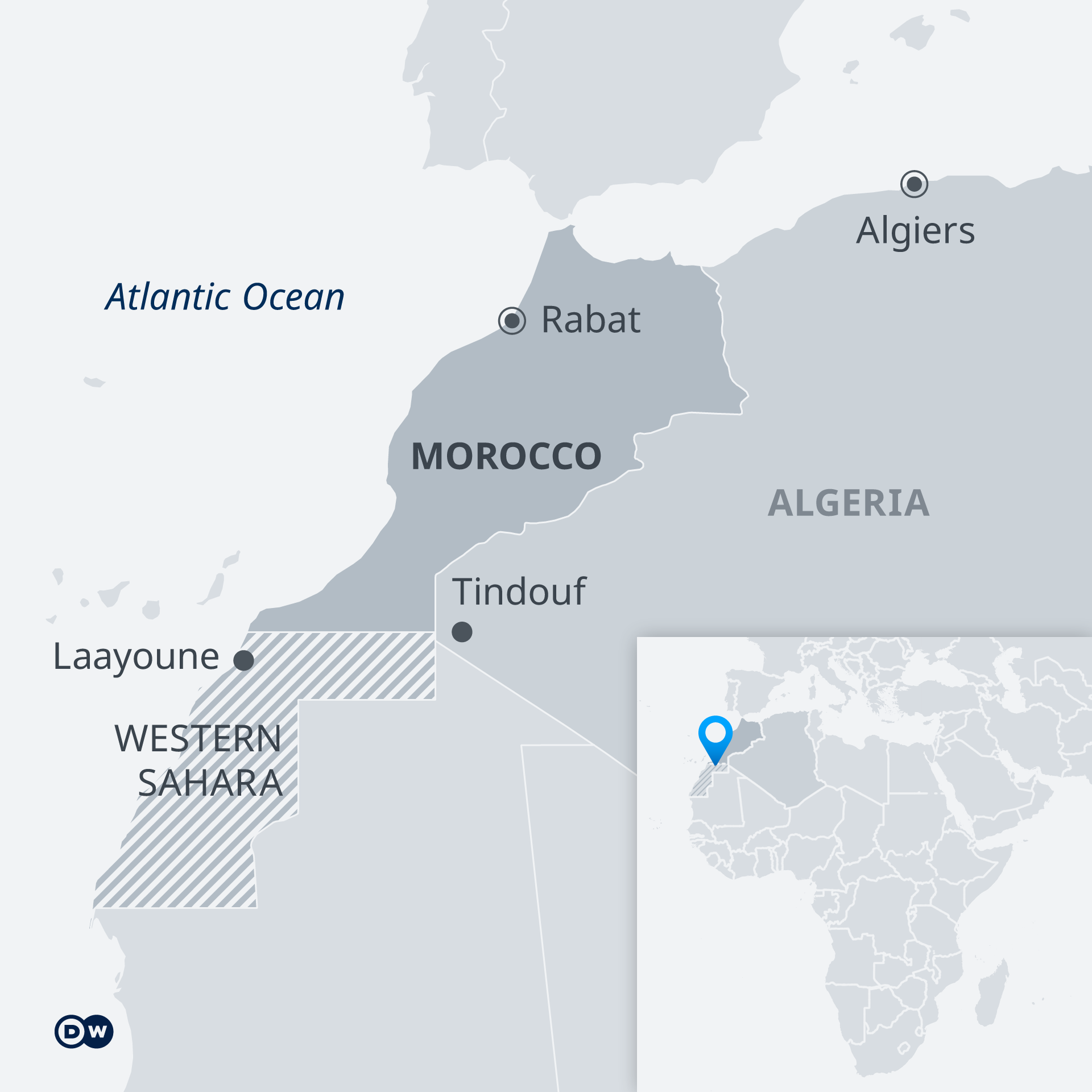



















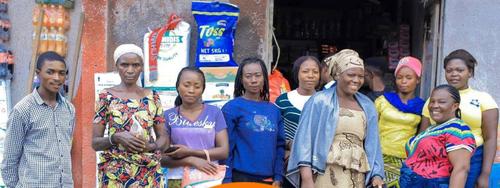
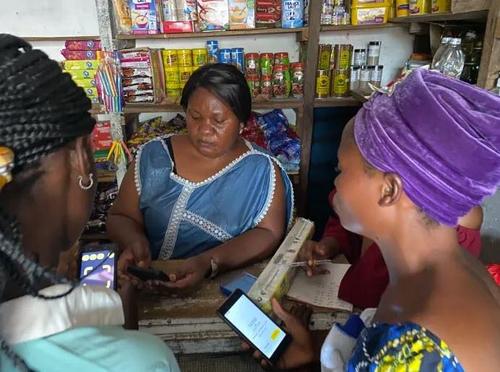
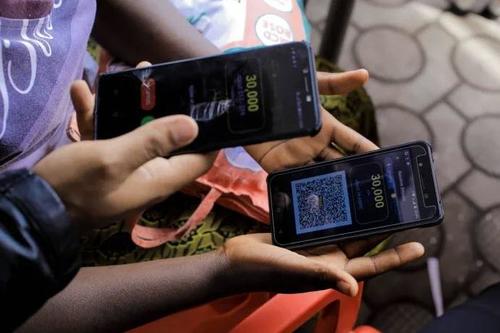





 avid RICH
avid RICH